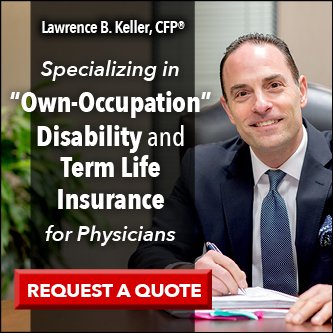Each week I run into a few articles that I feel are especially valuable. Every Monday I would like to share some of the best with you, my readers. I hope you find them helpful.
This week’s favorites include eight ways to stop fighting with your spouse about money, nice may not be the best negotiation tactic, capital gains harvesting, six simple rules for successful real estate investing, and FAQs when getting disability insurance.
Happy reading!
Ever find yourself in a heated discussion with your spouse about money? Everyone has them. But they don’t have to be fights, they can be discussions. Most of the time disagreements come from poor communication beforehand. Jean Chatzky’s Her Money gives us a helping hand with The 8 Best Ways to Stop Money Fights in Their Tracks. I have always felt my wife was my most valuable financial asset, so why fight with my best asset? The sixth point made in the article is the one that is most helpful in fending off money fights. What is your secret to curbing money fights?
We all find ourselves needing to negotiate from time to time. It could be to buy a hat from a street vender in Mexico, or for more money in your next employment contract. At any rate, having negotiating skills will come in handy. I ran across this article in Harvard Business Review that shared some research results, which found that Being Nice in a Negotiation Can Backfire. No one wants to be mean, or at least they shouldn’t want that, but it turns out the overly nice person is leaving money on the table in negotiations. Is that you? If so, this article will improve your negotiating skills.
We have all heard of tax loss harvesting. But it allows only a limited deduction ($3,000) on our taxes each year. What if there was a way to utilize all of those tax losses we harvest instead of saving them for the future? There is! It is called capital gains harvesting. The Loonie Doctor gives us a good example of how to do this in Capital Gains Harvesting in a Personal Taxable Account. Combining the two techniques, tax loss harvesting and capital gains harvesting, can give us a tax free income to spend from our portfolio.
Real estate investing can feel daunting when you first begin to think about diving in. But it is really not as difficult as you think. Passive Income MD gives us Six Simple Rules for Successful Real Estate Investing. If, after reading this article you feel it is too much for you to handle, then read my book The Doctors Guide to Real Estate Investing for Busy Professionals. I managed 64 units as a full-time general surgeon and so can you. If you need help making it less time consuming, then check out my course The Doctors Course to Automating Your Real Estate Investments. If it feels like a second job, you’re doing it wrong. Real estate investing should be passive income.
All doctors need to have a disability insurance policy, but not all have gotten the memo. DocWife gives us a good summary of the disability insurance in her post, FAQ to Getting Disability Insurance for Your Doctor Spouse. One in seven doctors will use their disability insurance during their career. This is more than the amount that will use their life insurance during their working years. If you are a working doctor and don’t yet have disability insurance, get some right away. You never know when an accident may waylay your career.
I hope you enjoy these articles as much as I did. I look forward to updating you again next week with a few more articles I find especially interesting. If you read an especially good article, send me the link so I can share it with others.




Thanks for the shout-out Dr. Fawcett. I was writing in the Canadian context where we don’t get to deduct capital losses against income (only against capital gains). However, the idea of using the technique to fully utilize your capital losses sooner in the U.S. is neat.
-LD